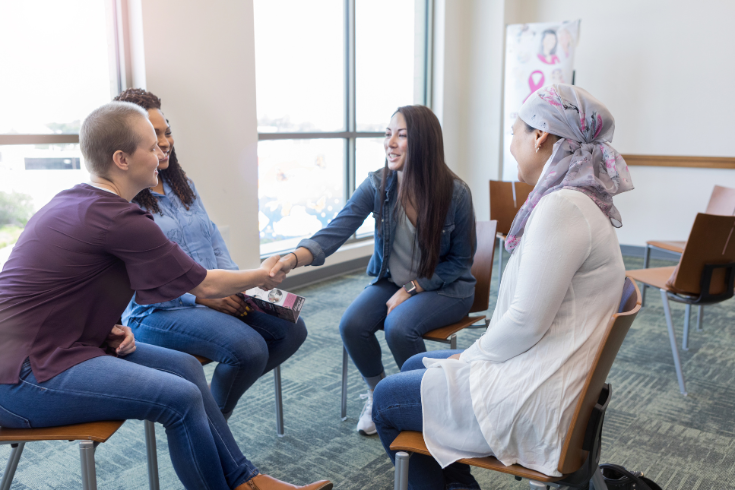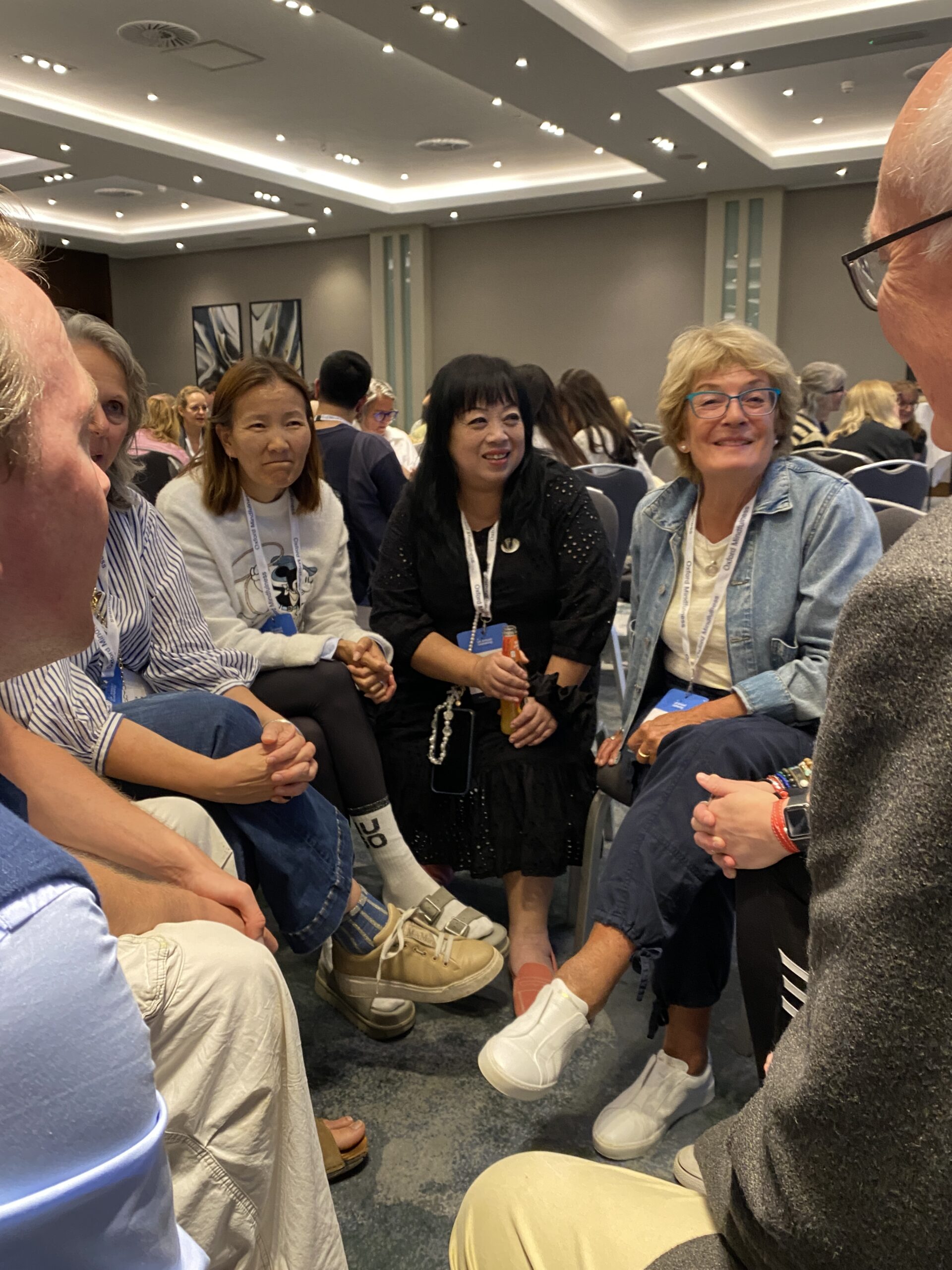As we celebrate the 30th anniversary of MBCT, I find myself reflecting on a journey that began in the late 1990s – one that has influenced my life and the lives of many others. MBCT for Cancer (MBCT-Ca) emerged from personal experience, professional collaboration, and a wish to offer something meaningful to those facing life-threatening illness. For mindfulness teachers considering this path, I’d like to share what I’ve learned.
Why teach mindfulness to people with cancer?
Teaching mindfulness to people with cancer is deeply rewarding. These participants often arrive with a profound understanding of suffering. Many are motivated and eager to find ways to live well, despite uncertainty. Mindfulness offers them tools to navigate fear, anxiety, and the emotional aftermath of treatment. It helps them reconnect with life, even when the future feels fragile.
For teachers, this work can be inspiring. You sometimes witness transformation in real time – people learning to support themselves through scans, follow-up clinics, and everyday moments.
It’s a privilege to contribute to that.
Common fears and misconceptions
Many mindfulness teachers feel apprehensive or even quite fearful about working with people with cancer. That’s understandable. A cancer diagnosis can be traumatic, and most of us have been close to someone affected by it. Some have experienced it personally.
Cancer outcomes are improving in many types of cancer and in most developed systems but in some cultures, there’s evident shame and also societal stigma. Cancer is still spoken of in hushed tones.
The language around cancer of “fighting” and “winning” or “losing” the battle can place undue pressure on those already struggling. I remember neighbours telling me, “Please don’t let it get you,” as if recovery were a matter of willpower.
Teachers may worry about saying the wrong thing or not knowing how to respond. But with the right training and support, these fears can be gently held and worked through.
What makes MBCT-Ca unique?
MBCT-Ca is a carefully adapted version of MBCT, developed over many years with kind input from colleagues like John Teasdale – who generously supervised my teaching for 10 years – Ursula Bates, and Christina Shennan.
It’s designed specifically for people with cancer, with four key emphases:
- Body – Central to regulation and reconnection, even when the body feels like it has “let us down.”
- Brief Practices – Eyes open, accessible, and easily woven into daily life.
- Group – A vital source of connection and shared learning.
- Four Movements – Intention, Coming Back, Turning Towards, and Kindness.
These elements help participants build resilience and find moments of peace, even in the midst of treatment or uncertainty.
Skills and sensitivities required
Teaching MBCT for Cancer (MBCT-Ca) involves more than delivering a curriculum. It requires sensitivity to trauma, an understanding of the psychological impact of cancer, and the ability to hold space for vulnerability.
We learn to lead practices like the Body Scan with awareness of the sensitivity of “the body of the group” in the room. We explore how to turn gently toward difficulty and how to offer brief, meaningful practices that can be used in clinics, on the bus or metro, or during work meetings.
This work calls for compassion, presence, and a willingness to meet people where they are.
Global reach and opportunities
MBCT-Ca is now being taught internationally. Thanks to Sharon Hadley, Oxford Mindfulness CEO, we’ve partnered with ZKBA in China to train teachers and offer workshops to medics, patients, and practitioners.
In southern Spain, colleagues are conducting research around MBCT-Ca with people at various stages of cancer. In the Netherlands, we’ve co-developed a low-cost learning app – mindfulnessandcancer.com – with 40 hours of bite-sized videos based on MBCT-Ca.
This global expansion reflects a growing need for emotional support and a desire to challenge stigma. It’s heartening to see mindfulness reaching those who need it most.




